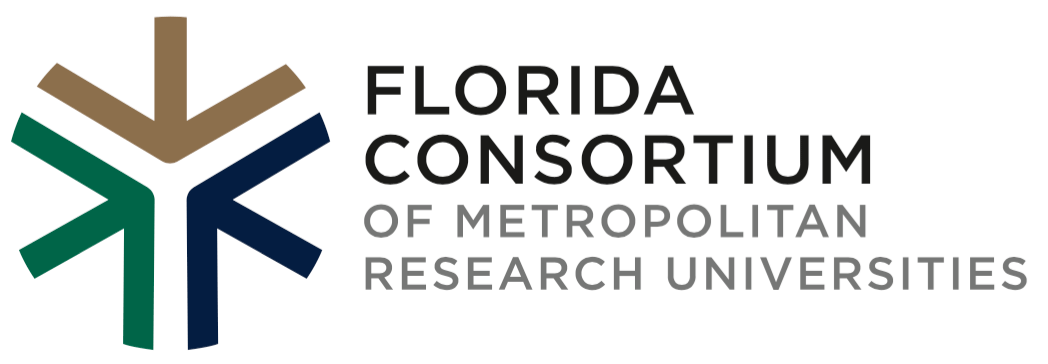Orlando, FL – This past week the Florida College Access Network, or FCAN for short, held its annual meeting at the B Resort in Orlando, Florida. FCAN is dedicated to expanding college access for all students regardless of ability to pay, additional academic supports, or any other barrier to attend and succeed in college. The conference attracts over 250 participants from Florida’s colleges and universities, non-profit and business sectors. Throughout the two days there are a number of sessions aimed at merging higher education with private interests to improve college access.
One of the highlights of the event is the annual student panel. This year ten students from diverse backgrounds who attend Rollins College, Florida International University, the University of Central Florida, and the University of South Florida gathered on stage on the evening of May 11th to tell their stories. The event was moderated by the Executive Director of the Florida Consortium of Metropolitan Research Universities, Dr. Michael Preston and Niurka Ferrer, Director of Transition Services at Valencia College. The students spent some time telling their stories; where they came from, how they got into college, what they hope to do after college. There are over 21 million college students in the United States. Many times we seek to better understand them by applying a concept called big data to their experiences. The idea is if we can group students into like populations then we can apply predictive models to them to help increase the chance each student will graduate from college. The problem is behind each bit of data there is a living, breathing student who is unique in their own right. These students were quick to point that out.

One student noted; “you know, if you look at this stage and apply traditional ways of applying diversity you would see six of us are Hispanic, three of us are black, and one of us is white. But we go much deeper than that.” Indeed, a closer look at the cultural and personal heritage of each student found that these students were from Chile, Venezuela, Cameroon, The Bronx New York, Orlando, Puerto Rico, Cuba. One was undocumented, most were first generation, one student came from a wealthy, influential family and one student was currently homeless. And that was there message. As one student replied, “I wish sometimes my professors would just ask us. Ask us why we are running late for class, or are struggling. I think they would find, it’s not because we can’t do the work, it’s because my mom is sick and I have to care for my three brothers.”
While there were a number of questions asked by audience members the most poignant moment of the evening when an audience member asked about grit. “I would like to know how all of you have been able to defy the odds when others, who have been through even less can’t seem to make it.” One of the students on the panel replied; “I bet it’s because no one ever reached out and tried to keep that student there. We all know what it is like to feel alone and to think about giving up. I think most of us were just lucky there was someone there to pick us back up.”
Another huge theme of the night was the affordability of college. “It’s a problem,” said one student; but another offered this viewpoint. “Look, college is expensive, but we don’t make it any better, we think we should not have to suffer at all or struggle while in college, but we do, and we need mentors to help us be smarter about our money. Help us apply for scholarships, make us do a budget, make us think twice before buying that new cute sweater.” Even though all of the students acknowledged colleges can do more to make college more affordable they also understood they too bear some of the responsibility. “That is why I went to community college.” Said one student, “so I can pay as I go. I’m lucky, I got no debt.”
These stories gave FCAN participants a new perspective into the lives of students and will be the first in an effort to tell the stories of 1,000 Florida College students. The Florida 1,000 Project will be sponsored by the Florida Consortium of Metropolitan Research Universities and hopes to put a face to all of the data we see every day. To learn more about the Florida 1,000 Project keep checking back on this blog. The final question surrounded around if college was worth it. All of the participants said that it was absolutely worth it. “I have three younger brothers,” said one participant, “I know that my example has shown them that you can do it. I know it is on me to make it work.”


